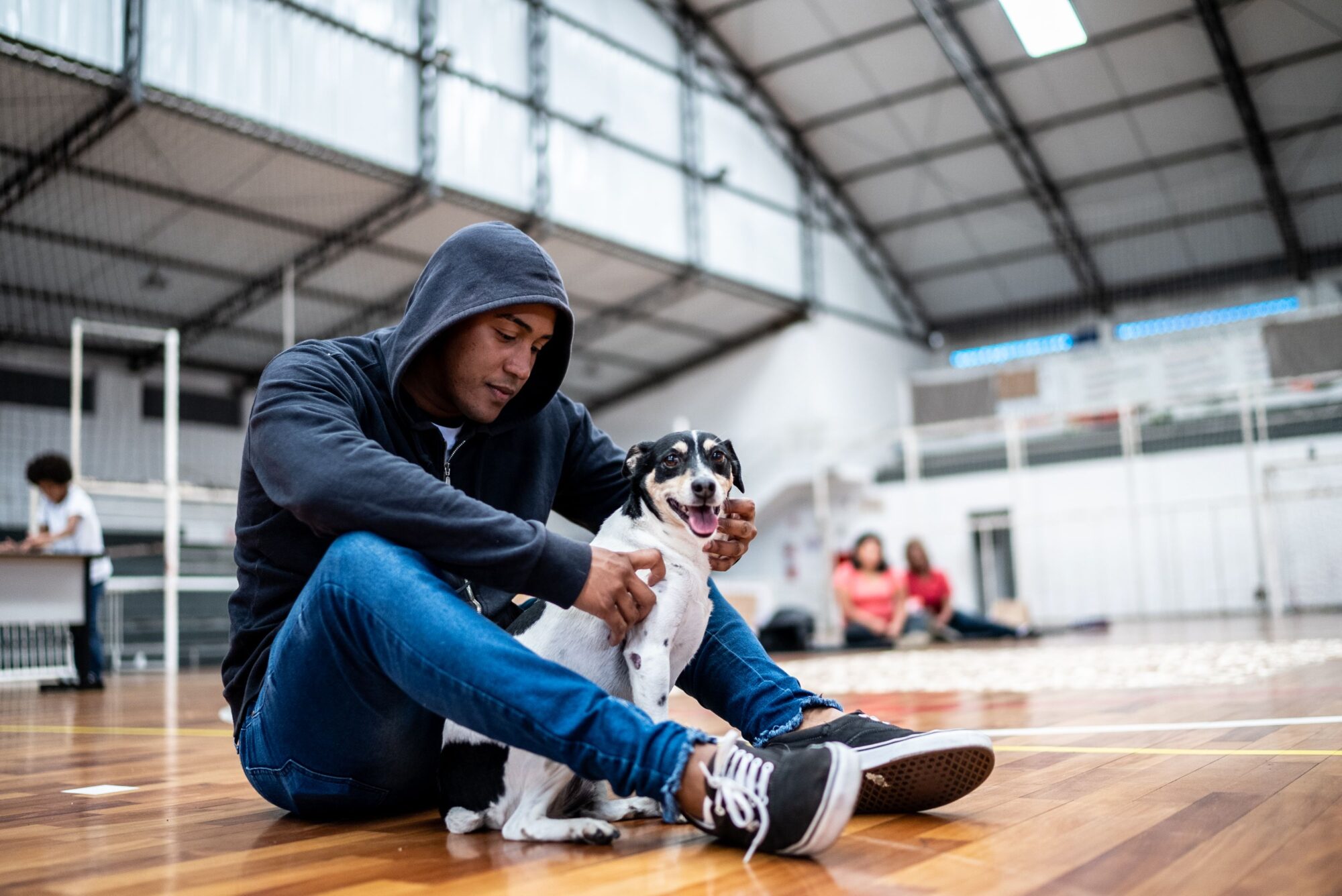Preparing Your Pet for Emergencies: A Guide to Keeping Your Furry Friend Safe

It may not be pleasant to think about emergencies like flooding, wildfires or earthquakes, but when minutes count, disaster readiness can help lessen the trauma for your pets and your family in the event of a manmade or natural disaster.
Our caring team at Bayside Animal Hospital has assembled the following pet safety tips to help you with your emergency planning before disaster strikes.
Separation Happens
Any emergency pet preparedness plan should take into account the possibility that you and your pet will become separated, whether it’s because you aren’t home when the disaster occurs, or because your pet might run away during the commotion. To greatly improve your chances of being reunited with your pet, have your pet microchipped if you haven’t already, and make sure your pet’s ID tags and microchip information are up to date. Without proper identification, your pet could be mistaken for a stray.
Make Routine Healthcare a Priority
In the aftermath of a natural or manmade disaster, you might have to board your pet or relocate your family—and you won’t have time for a vet visit! New environments expose your pet to communicable diseases as well as fleas and ticks from unprotected animals. You can protect your pet year round by staying current on wellness exams, appropriate vaccines, and parasite control.
Pet Preparedness Kits for Disaster Readiness
If you need to evacuate, having a prepacked kit containing pet essentials can save valuable time.
The Humane Society offers a convenient checklist of items to consider when creating a pet disaster kit that suggests the following:
- About a week’s worth of food and drinking water per pet, and bowls
- Prescription medications and other supplements in a waterproof container
- A pet first-aid kit
- Litter box, cat litter, scoop, and plastic bags for disposal
- Leash, harness, and carrier per pet
- Current photos of you and your pets to prove they are your pets in case of separation
- Special toys, familiar blankets
- Veterinarian’s contact information
Other helpful supplies include:
- Paper towels
- Disinfectant wipes
- Grooming supplies
- Pet wipes for their fur
Designate a Safe Place in Advance
If you need to evacuate, where will you go? Know in advance the hotels (and shelters) that accept pets, or ask an out-of-town friend or family member within easy driving distance if you can seek refuge at their house in the event of an emergency. Contact us or ask us at your pet’s next visit for suggestions on boarding facilities.
Stay Calm
Move calmly but quickly during any emergency situation. Our pets can tell when we’re feeling anxious or upset, and a frightened pet may run away or hide when you need their cooperation the most.
At Bayside Animal Hospital, we take pet safety seriously. If you have more questions about pet preparedness and emergency planning, please contact us at (916) 791-8387.


